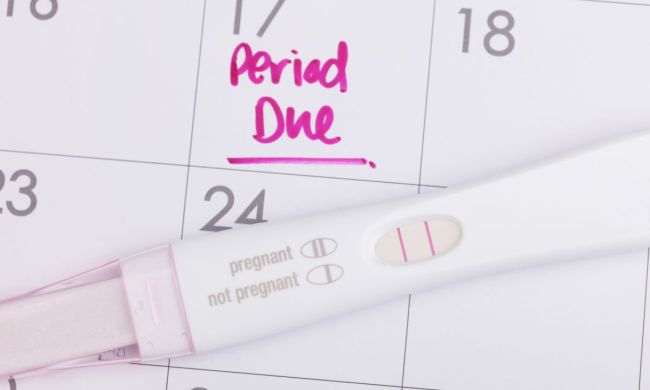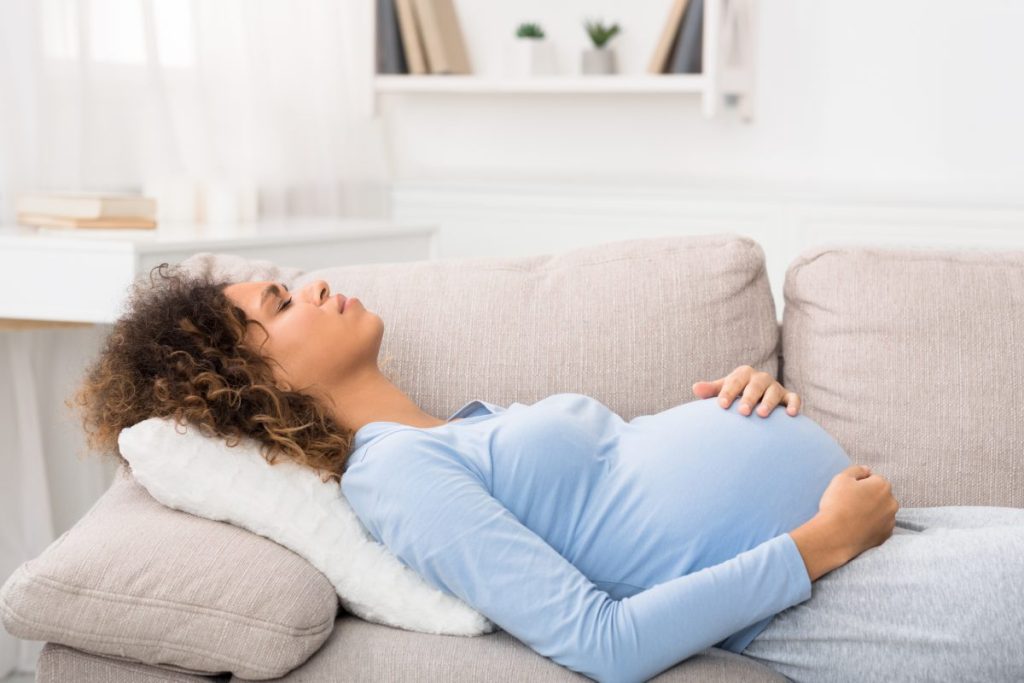
Pregnancy is an exciting time of a person’s life, but it isn’t without its aches and pains. There’s nothing quite like experiencing pregnancy, but along with the awesomeness of growing a human being comes exhaustion, a constant need to pee, odd cravings, mood swings, and a constantly growing belly. Amid all of that, sometimes you have to deal with pregnancy pain as well.
One thing you may not be expecting, however, is cramping. Cramps are a common contraction of muscles many women experience during their menstrual cycle in their lower abdomen. It’s also a symptom commonly associated with miscarriages in the first trimester of pregnancy.
Are you 19 weeks pregnant and cramping? If so, you may be confused, because that’s probably not something you’d thought you’d be feeling, especially in the second trimester. Of course, you may immediately worry that the cramping is a symptom of something wrong with the pregnancy, but cramping at around 19 weeks can be completely common, but also uncomfortable. Since you weren’t expecting to have this pregnancy symptom, here are some explanations as to why you’re cramping and what you can do to relieve some of the pain and discomfort.
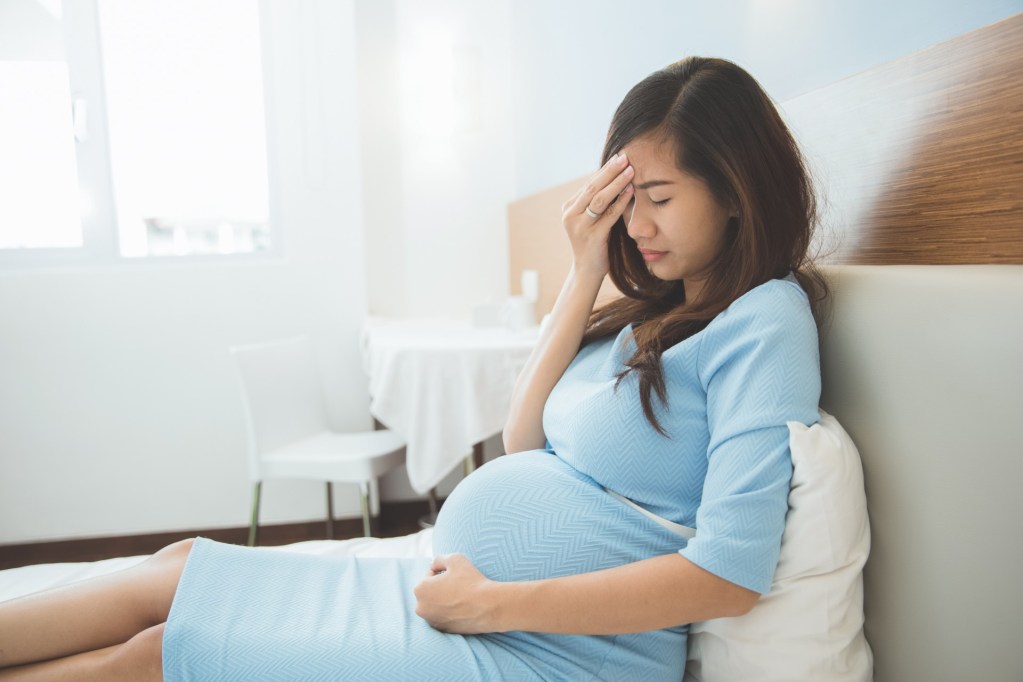
Why are you cramping?
As your baby develops, your body goes through many gradual changes, causing you to feel pain, start to swell, and get hit with cramps. The main cause of cramping around the 19-week mark is the stretching of the muscles and ligaments in the uterus as it begins to expand more and more to accommodate your growing baby.
While that feeling of tugging on both sides of your lower abdomen can be uncomfortable, it also means that your child is developing and growing. The main ligament of the uterus is the round ligament, and it’s typically the cause of any painful cramping. As this round ligament stretches, it can create either an aching pain or a sharp, tight pain on your sides. The pain can happen every once in a while, but not consistently. If the cramping you’re feeling is constant and consistent, you should immediately consult with your doctor.
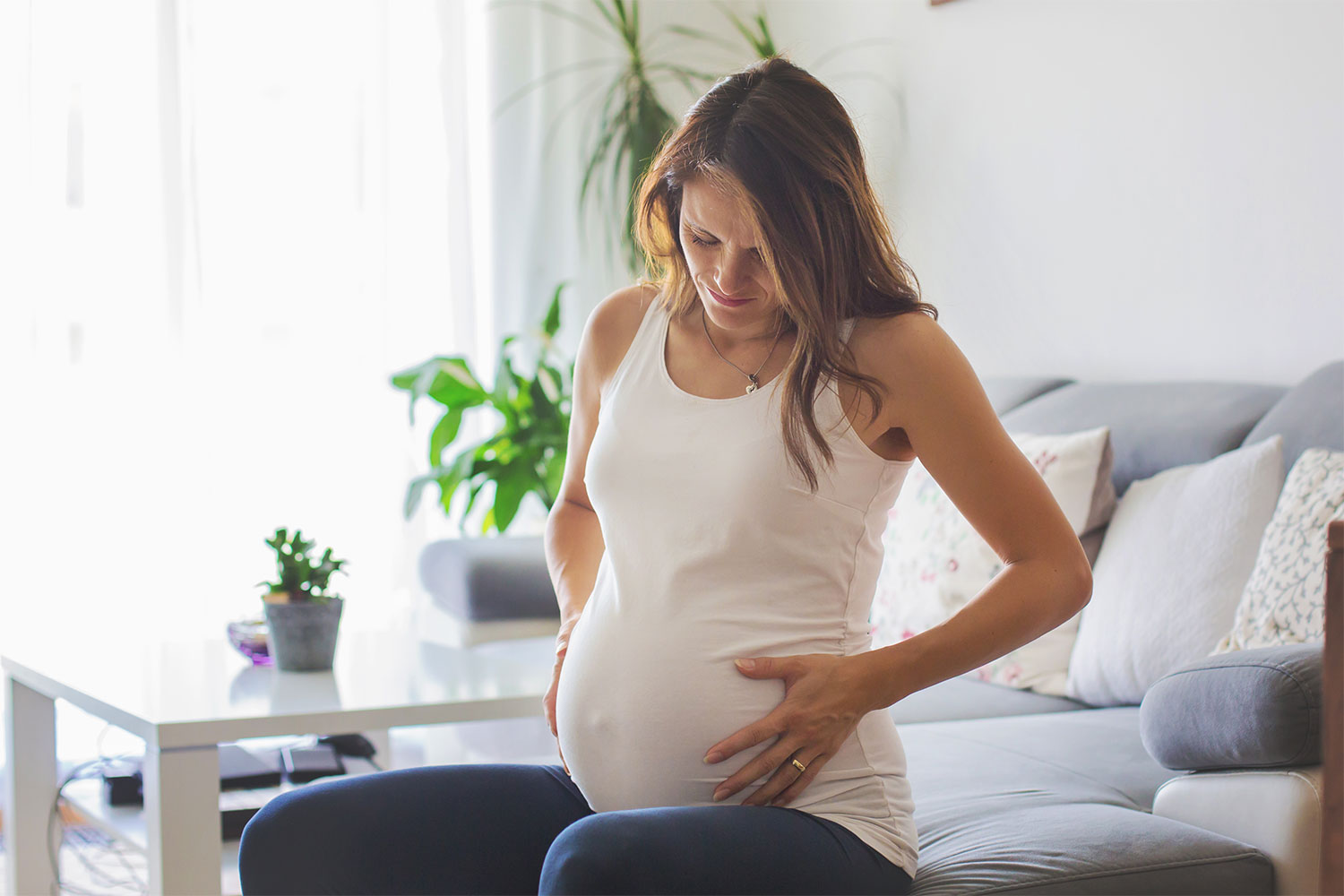
Other common causes of 19 weeks of pregnancy cramping
In addition to the stretching of the round ligament in the uterus, cramping in pregnancy around the 19-week mark can have other causes, including
- Being bloated
- Excess gas
- Constipation
- Extra blood flow to the uterus
- Braxton Hicks contractions, which happen around 20 weeks and are very short, contraction-like pains
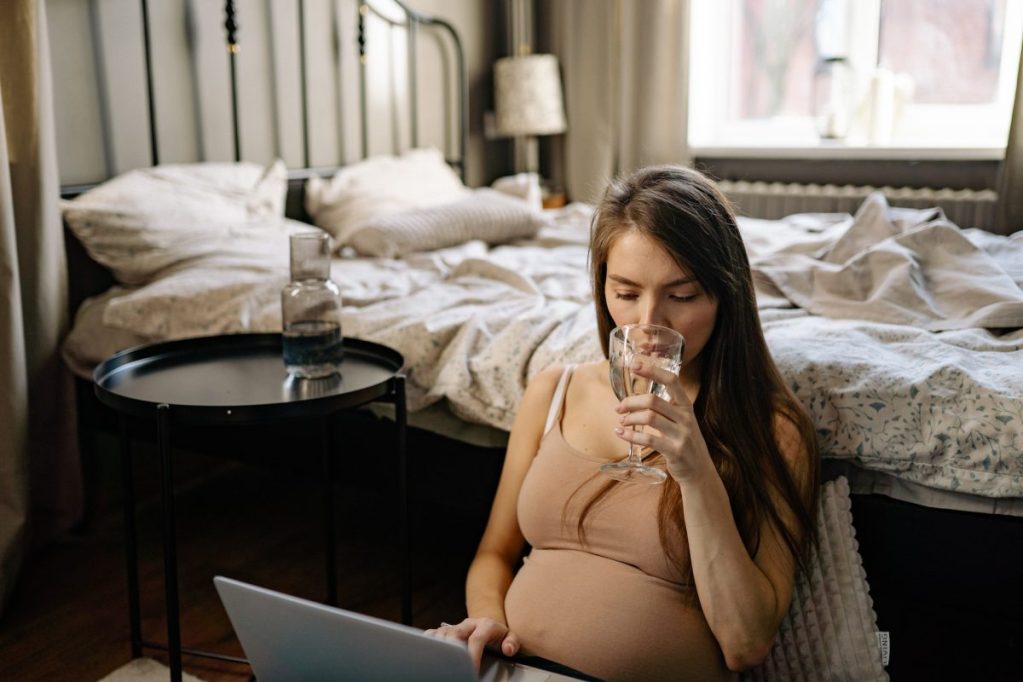
What are some ways to reduce or get rid of cramping?
Depending on the cause of your cramps, there can be several ways to reduce the discomfort or at least get rid of it for the time being. Whether you have severe gas pain, post-sex cramping, or a stretching ligament in your uterus, you can be on your way to a more enjoyable and comfortable pregnancy with these simple tips.
- Gas medicine can quickly and easily reduce cramping caused by being bloated or constipated. Before taking any gas-reducing over-the-counter medicine, make sure you speak to your doctor first.
- Changing up the position that you’re sitting or lying in can be an effective way to ease cramping. It will take the pressure off of the painful area and hopefully relieve the discomfort.
- A warm bath can relieve cramping and help you relax.
- Drinking more water may help get rid of those annoying pains since dehydration can often cause cramping. Ensure you are drinking enough water each day. The Institute of Medicine recommends pregnant women drink at least 10 8-ounce glasses of water every day.
- Try not to move too suddenly or abruptly. Doing so can cause cramping as the ligaments in your uterus stretch with sudden movement. By changing positions slowly, you’ll give the ligaments more time to catch up, which will reduce the chances of hurting yourself.
- Put a warm rag or hot water bottle on the places that hurt. Just like when you have period cramps or leg cramps, a warm compress will be a welcome relief.
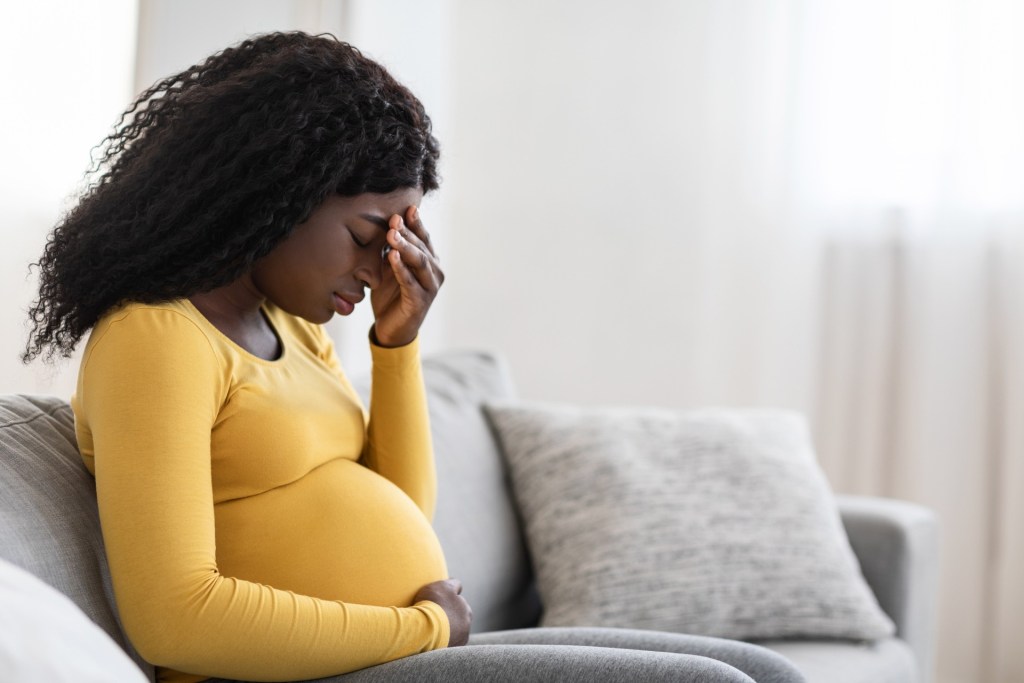
When are cramps concerning?
While most pregnancy cramps should not be a cause for concern, it is important to see your doctor whenever you feel a mix of certain symptoms. If you experience any of these symptoms on top of cramping, something more serious may be happening.
- Intense pain in the lower abdominal region that lasts for an extended period
- Spotting that comes with painful cramping
- Fever or chills
- Sudden severe headache, swelling, and vision changes
- Painful urination and cramping
- Intense cramping that does not go away
- Heavy bleeding accompanied by intense cramps
- Dizziness
These symptoms belong to a variety of conditions and issues that may arise during pregnancy. They are oftentimes accompanied by cramping, so it is important not to dismiss a cramp when coupled with other symptoms. Although most cramps are not harmful or life-threatening, it is important to be aware of your body at all times. If you have any concerns at all regarding the 19 weeks of pregnancy cramping, call your doctor.
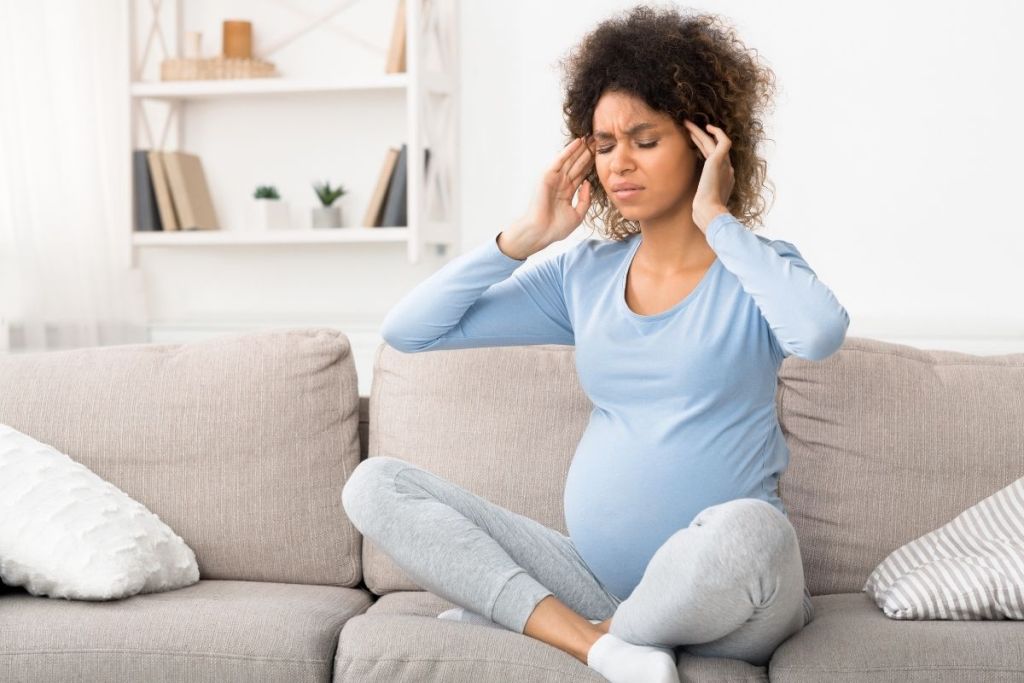
Some causes of cramping that require immediate medical attention
In addition to the serious symptoms listed above, the following serious complications may involve cramping as well and should be evaluated by your doctor.
- Urinary tract infection (UTI)
- Miscarriage
- Placental abruption
- Preeclampsia
- Ectopic pregnancy
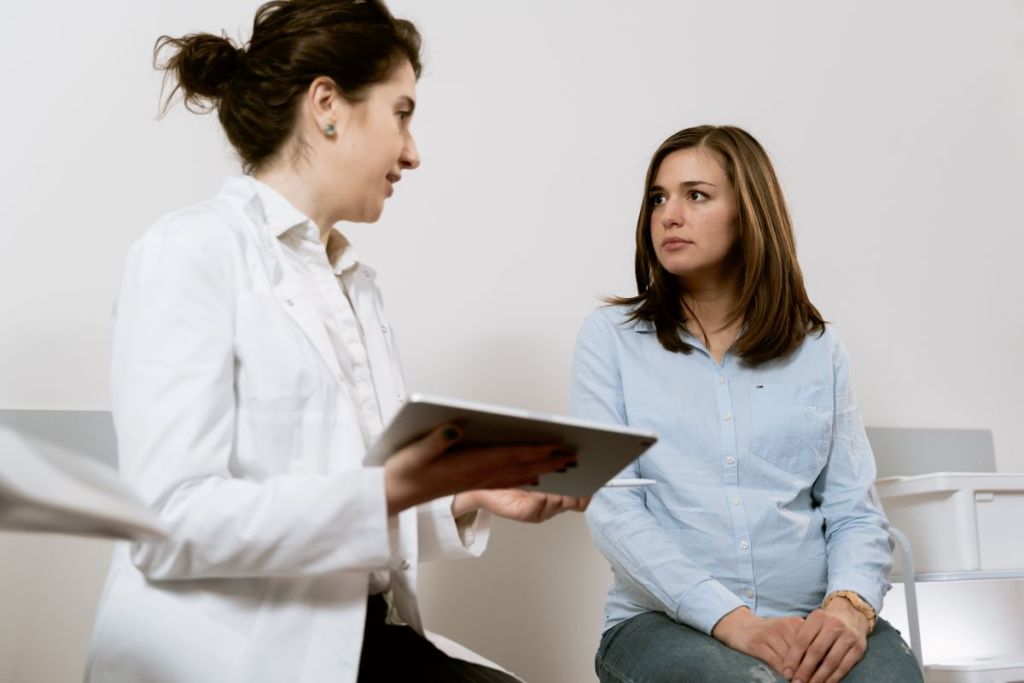
When to call your doctor
If you experience any sudden or unusual changes during pregnancy, your best bet is to see your doctor just to be safe. They’ll get you set up with the answers and solutions to address any issues or relieve any pain. Always trust your gut and get checked out if you feel like you should. It’s always best to err on the side of caution during pregnancy.
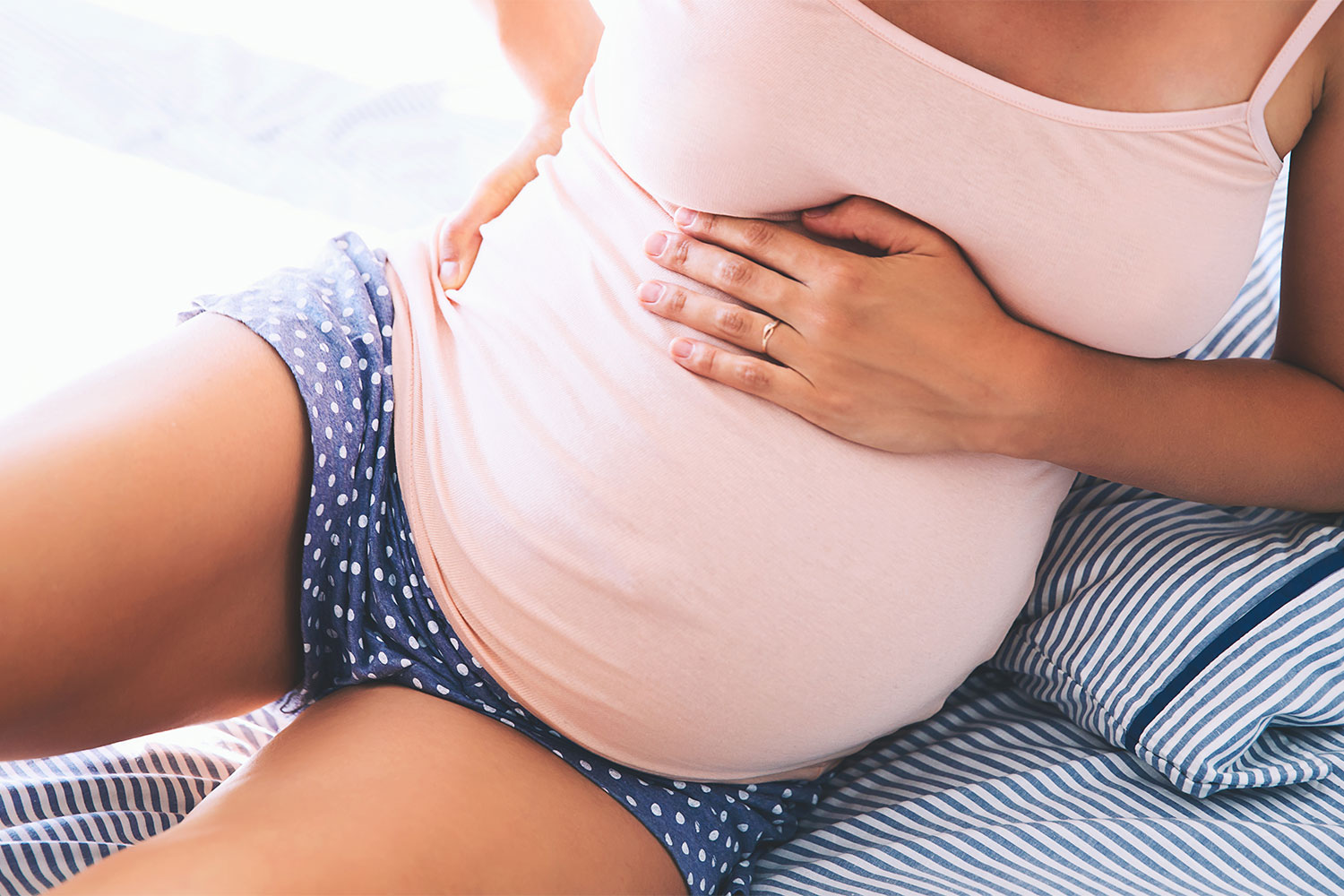
What to do if you’re worried about cramping
It’s normal to be worried during pregnancy, especially when you’re feeling something out of the ordinary. While you don’t want to feel like you’re overreacting when something feels off, it’s important to trust your instincts. If you find yourself concerned about the cramping you’re experiencing, reach out to your healthcare provider for guidance.
“In some cases, an ultrasound can be done to help determine the cause for severe cramping,” OBGYN Dr. Srijaya Soujanya Nalla explained to Banner Health. “Sometimes severe cramping can be the first sign of miscarriage or an ectopic pregnancy. Other times, it could be non-pregnancy related issues like a bladder infection or constipation, which are quite common in pregnancy.”
Experts agree that it’s always better to err on the side of caution when it comes to contacting your healthcare provider during pregnancy if you feel that something may be wrong or unusual.
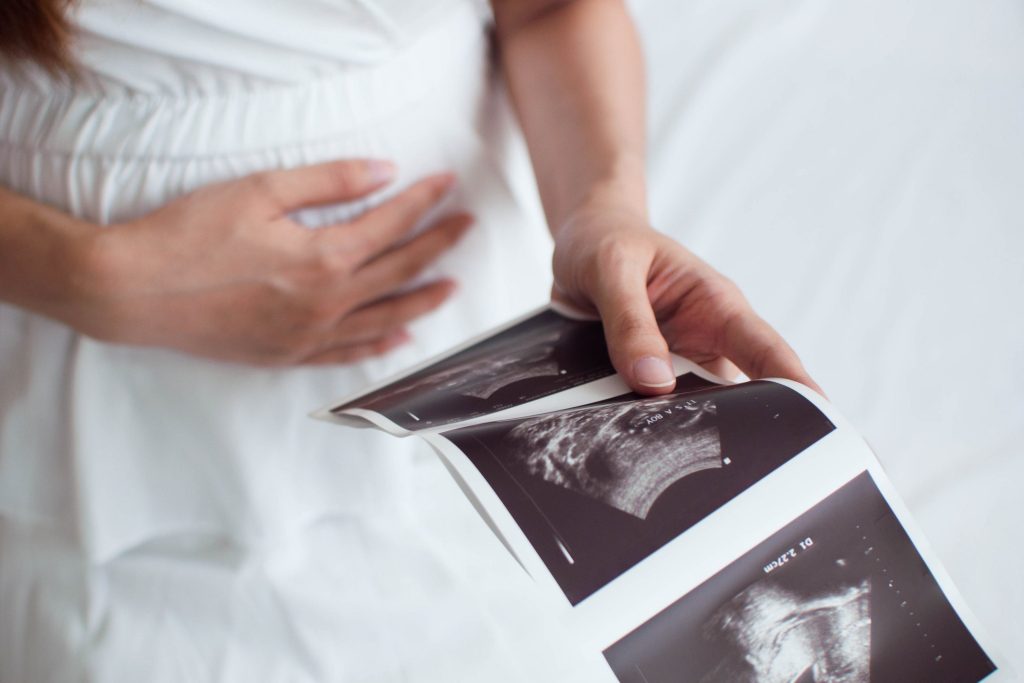
What should you be feeling at 19 weeks pregnant?
Pregnancy can be confusing, especially if this is the first time going through it. It can be difficult to know if those aches, pains, and cramps are normal or something to be worried about. Once you reach 19 weeks, you’ll probably notice your bump is growing steadily, and you may finally be getting back a bit of that energy that left you during the first half of your pregnancy. Healthline notes that some other common symptoms you may experience once you reach 19 weeks, and they include:
- Fatigue
- Frequent urination
- Weight gain
- Enlarged breasts
- Dark line down your abdomen
- Trouble sleeping
- Headaches
- Dizziness
Not everyone will experience some, all, or any of these symptoms, but if you are know that it’s perfectly normal. However, anytime you feel worried about how you’re feeling, you should never hesitate to reach out to your doctor.
Regular cramps during pregnancy are just another uncomfortable change many expectant mothers endure. Also, cramping at 19 weeks is an important and healthy part of your baby’s development. These half-way-there cramps are one more thing a pregnant mother gets to experience before they meet their precious baby. Have a warm compress handy, get those feet up in a comfortable position, and tell yourself the cramps will be worth it once you are holding that little bundle of gorgeousness.
Whenever you feel as if something isn’t right, your 19-week cramps are accompanied by other symptoms or you would simply feel better talking to your doctor, call your obstetrician or medical professional.



